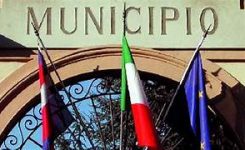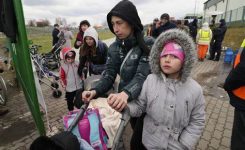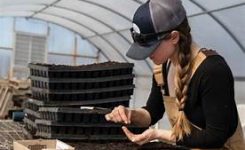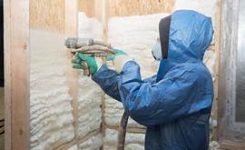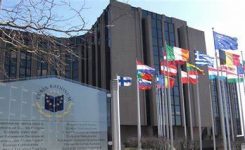Notizie
webinar Aiccre, Emilia Saiz: enti locali protagonisti mondiali
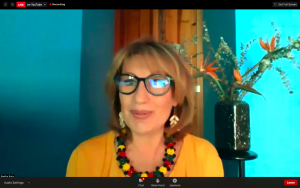
Dobbiamo cercare di lavorare su vari livelli, questo è fondamentale per capire come si può andare avanti. Lo scambio di esperienze non è l’apprendimento: se si fa uno scambio un’interazione in realtà non si apprende. Il ruolo della rete è mettere insieme un processo in modo da poter condividere le esperienze in modo collettivo: occorre quindi andare oltre e creare delle politiche di apprendimento. Questo è fondamentale da realizzare e quindi non possiamo farlo da soli ma insieme.
E’ ovvio che i governi locali devono reagire al più presto, aprire la piattaforma di scambi. Siamo più di 3000 partecipanti e dobbiamo definire delle priorità per lavorare insieme. Ci sono circa 200 documenti, raccomandazioni politiche e tanto altro. Ci sarà la trasformazione di queste esperienze e di queste raccomandazioni in un processo di advocacy. Questo è fondamentale perché vuol dire che ci si rivolge alla comunità internazionale, globale e non solo alle istituzioni come le Nazioni Unite. Quindi dobbiamo capire questi aspetti fondamentali per andare oltre la pandemia, ma anche a tutte le altre problematiche e difficoltà.
Come rete dobbiamo offrire una piattaforma per interloquire al livello internazionale. Poi dovremo andare oltre questo e lo stiamo facendo e quindi riflettere il futuro dell’umanità, dell’aspetto multinazionale ma anche tutto ciò che riguarda l’anniversario delle Nazioni Unite e così via; abbiamo dieci raccomandazioni per il futuro: i governi locali hanno bisogno di essere i portavoce di questi dibattiti, di queste tematiche, sta a loro essere all’avanguardia e trovare ed identificare il giusto interlocutore per questo dibattito.
Ho appena partecipato ad un evento internazionale che ha avuto come obiettivo la difesa del sistema sanitario universale e di tutti i servizi ad esso connessi e collegati, la cui importanza lo abbiamo capito dalla pandemia. Perché il sistema sanitario non è solo l’ospedale o i medici.
Insieme si va avanti, da soli non si va da nessuna parte e quindi dobbiamo capire tutti questo aspetto, dobbiamo concentrarci sulle priorità, ovvio, ma dobbiamo partire dal locale per andare al globale e quindi ecco perché le Agende globali sono fondamentali, dobbiamo riferirci a queste e come abbiamo detto prima, penso che si possa essere un buon leader locale soprattutto perché si ha un ruolo anche al livello globale. Insomma, il locale e il globale vanno di pari passo, non esiste un buon amministratore locale e un pessimo amministratore globale, se uno andrà bene da una parte, andrà bene anche dall’altra. Quindi dobbiamo mantenere questo quadro globale e le Agende globali per andare oltre, superare la pandemia (ma la pandemia è un esempio), fronteggiando tutte queste difficoltà come anche in passato. Oggi siamo meglio organizzati e più consapevoli delle potenzialità che abbiamo tutti insieme grazie a questi strumenti.
We have to try to work on various levels, this is essential to understand how we can move forward. The exchange of experiences is not learning: if you make an exchange an interaction is not really learning. The role of the network is to put together a process so that we can share experiences collectively, so we need to go further and create learning policies. This is essential to achieve and therefore we cannot do it alone but together.
It is obvious that local governments must react as soon as possible, open up the exchange platform. We are more than 3000 participants and we need to set priorities to work together. There are about 200 documents, policy recommendations and much more. There will be the transformation of these experiences and recommendations into an advocacy process. This is crucial because it means that we are addressing the international, global community and not just institutions like the United Nations. So we have to understand these fundamental aspects in order to go beyond the pandemic, but also to all the other problems and difficulties.
As a network, we must offer a platform for dialogue at international level. Then we will have to go beyond this and we are doing so and then reflect on the future of humanity, the multinational aspect but also everything related to the anniversary of the United Nations and so on; we have ten recommendations for the future: local governments need to be the spokesmen for these debates, for these issues, it is up to them to be at the forefront and to find and identify the right interlocutor for this debate.
I have just taken part in an international event whose aim was to defend the universal health system and all the services connected with it, the importance of which we have understood since the pandemic. Because the health system is not just the hospital or the doctors.
Together we are moving forward, we are not going anywhere on our own and therefore we all have to understand this, we have to focus on priorities, of course, but we have to start from the local to go global and that is why Global Agendas are fundamental, we have to refer to them and as we said before, I think that we can be a good local leader especially because we also have a role at global level.
In short, the local and the global go hand in hand, there is not a good local administrator and a bad global administrator, if one goes well on one side, it will go well on the other. So we have to keep this global framework and the Global Agendas to go further, to overcome the pandemic (but the pandemic is an example), facing all these difficulties as well as in the past. Today we are better organized and more aware of the potential we all have together thanks to these tools.

